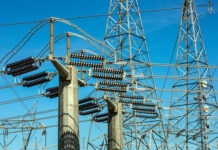The Nigerian National Petroleum Company Limited (NNPCL) has made significant progress in the past week in its efforts to combat the issue of crude oil theft.
A recent documentary by the organization revealed that a total of 165 illegal refineries were uncovered in various locations across the Niger Delta region.
Between June 15 and 21, both the government and private security agencies reported approximately 400 incidents of oil theft and vandalism.
Specifically, 69 illegal connections were discovered and disconnected in Bayelsa and Rivers States.
Additionally, eight cases of oil spills resulting from vandalism or illegal connections were reported throughout the region.
In Warri, Delta State, an illegal loading point was also discovered.
The NNPCL documentary further revealed that 69 illegal refineries were dismantled in several swamps in Okrika, Rivers State.
The construction of an ‘oven’ for illegal crude oil refining was successfully halted.
Similar refining sites were uncovered in different locations in Abia and Bayelsa States. Moreover, the NNPC uncovered 19 illegal storage sites filled with stolen crude and illegally refined products in Delta, Imo, Rivers, Abia, and Bayelsa States.
As part of their operations, 11 vehicles were seized in Delta, Akwa-Ibom, and Bayelsa States, while 39 boats carrying stolen crude were confiscated in Rivers, Delta, and Bayelsa States. Additionally, eight individuals were arrested in connection with these incidents.
Raye24reporters reports that these recent developments are particularly significant as Nigeria’s crude oil production has been declining, making it challenging to meet the country’s 1.5 million barrels OPEC quota.
The NNPCL Group Chief Executive Officer, Mele Kyari, has emphasized the importance of addressing insecurity in the oil and gas sector, as it directly impacts the nation’s crude oil production.
He said, “How do you increase oil production? Remove the security challenge we have in our onshore assets. As we all know, the security challenge is real. It is not just about theft; it is about the availability of the infrastructure to deliver the volume to the market.
“No one is going to put money into oil production when he knows the production will not get to the market. Within the last two years, we removed over 5,800 illegal connections from our pipelines. We took down over 6,000 illegal refineries. You simply cannot get people to put money until you solve that problem.”











































